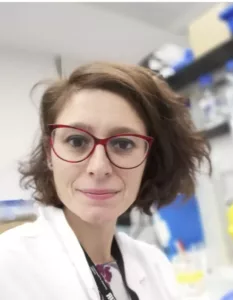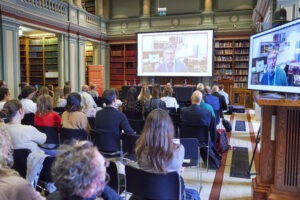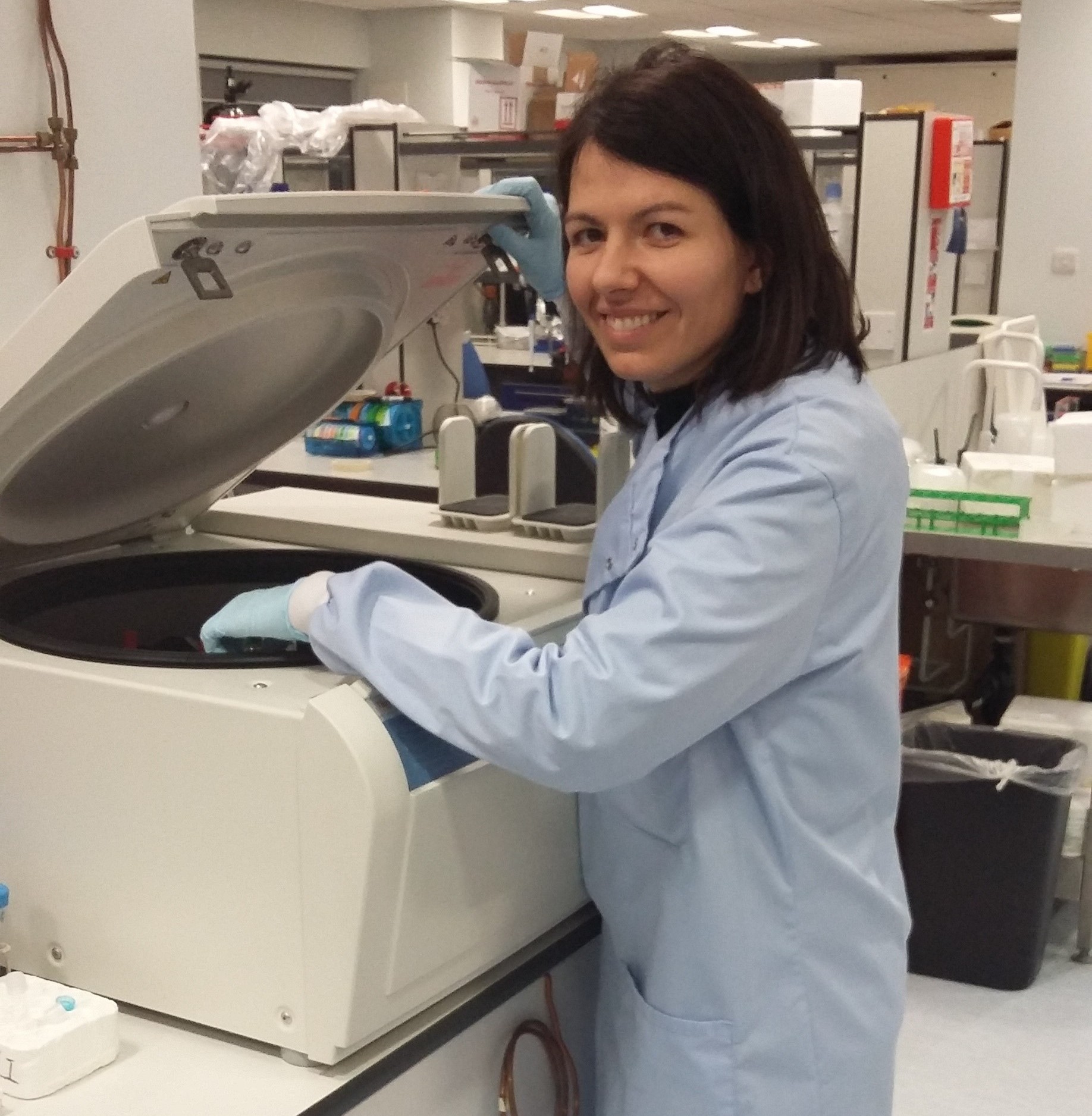
02 Oct 2025
Marking a decade of breakthroughs and collaboration
This October marks a decade since Leukaemia UK launched its John Goldman Fellowship (JGF) programme – an initiative specially designed to nurture early-career researchers with bold ideas supporting their path to becoming future leaders in leukaemia research. Over those ten years, the Fellowship has become a springboard, helping scientists pivot into new fields, build their own teams, and push forward fresh, high-risk / high-reward projects.
From the start, the vision was rooted in support and flexibility. These fellowships are awarded to researchers at a critical career stage: Those ready to become independent but who still need the time, funding and freedom to explore. The JGF provides just that.
Today, we will shed light on what the last 10 years have achieved, as well as sharing some of the latest science coming out of some of our current John Goldman Fellows’ labs – and one even goes into all of the science and the process behind her work if reading more about it tickles your fancy. Over the past decade, Leukaemia UK has awarded 46 John Goldman Fellowships, investing nearly £6 million in pioneering research.
Research careers are often bottlenecked by two challenges: 1) getting enough funding to test a bold, novel idea and 2) the transition to becoming an independent research leader, able to build their own teams and drive new research forward. The JGF helps to overcome this gap by offering £150,000 over 18-24 month periods, which enable the Fellows to establish momentum and publish results that attract further funding.
Because science advances through sharing ideas, i.e. publishing work in peer-reviewed journals, this is not just a metric – it shows actual progress. The Fellowship often acts as a catalyst: in many cases, Fellows nearly double their publication output during their award and sustain higher output after. This amplifies both their individual careers and the broader leukaemia research community. And to support this community and their findings more the funding from LUK doesn’t necessarily stop after two years – Fellows can go on to apply for a JGF Follow-up Fund to continue their research.
For additional context, below are some recent publication highlights from our current John Goldman Fellows:
Lead researcher: Dr Maria Teresa Esposito and colleagues
Publication: Exploiting PP2A dependent and independent effects of forskolin for therapeutic targeting of KMT2A (MLL)-rearranged acute leukaemia.

Dr Maria Teresa Esposito, University of Surrey
Acute myeloid leukaemia (AML) with KMT2A rearrangements is among the more aggressive and therapy-resistant subtypes. Dr Esposito and her team recently published their findings of the use of forskolin in the treatment of a particular type of AML. KMT2A-rearranged (KMT2A-r) acute myeloid leukaemia (AML) is an aggressive subtype associated with a poor prognosis, characterised by high relapse rates and low long-term remission, in both paediatric and adult patients. The team found that Forskolin increases sensitivity to standard-of-care treatment for KMT2A– AML cell lines and PDX, daunorubicin. The treatment of Forskolin stops proliferation, induces cell death and represses the expression of MYC (MYC – a key protein involved in the development of T-ALL), HOXA9 (HOXA9 is central to AML development and progression) and HOXA10 (– blocks development of the growing blood cells).
In a separate conversation, we spoke with Dr Esposito about her research and the discovery of forskolin. If you’d like to learn more about how this naturally occurring compound could play a role in fighting leukaemia, you can read our feature here.
Lead researcher: Dr Matthew Blunt and collaborators
Publication: CD40L and IL-4 suppress NK cell-mediated antibody-dependent cellular cytotoxicity through the HLA-E:NKG2A axis.

Dr Matthew Blunt, University of Southampton
Dr Blunt and his team’s most recent publication is highly relevant to B-cell cancers such as Chronic Lymphocytic Leukaemia (CLL) and non-Hodgkin lymphoma, where anti-CD20 antibodies (like Rituximab and Obinutuzumab) are a mainstay of treatment. These antibodies usually work by engaging natural killer (NK) cells, which help the immune system destroy cancer cells.
Dr Blunt discovered a potential barrier to this process: within the lymph nodes, cancer cells can “hide” by activating an immune checkpoint called NKG2A. This sends an inhibitory signal to NK cells, reducing their ability to kill the cancer. Their results suggest that blocking NKG2A could enhance the effectiveness of anti-CD20 antibodies, helping the immune system more efficiently target cancer cells in the lymph nodes.
Although this work is still emerging, it points toward a promising combination immunotherapy approach: using antibodies that target both the cancer itself (CD20) and the immune checkpoint (NKG2A) could be more effective than either treatment alone for some patients.
Alongside primary discoveries, many Fellows produce review articles – high-level overviews that help frame progress, highlight gaps, and guide future work.
- Dr Kellaway et al.: Their work weaves together diverse strands relating to what makes a leukaemic stem cell unique. By synthesising data from metabolism, epigenetics, signalling, and microenvironmental interactions, they argue that features of stemness are deeply intertwined and that attacking one node may ripple through others.
- Dr Tzelepis et al.: They present a state-of-the-art look at epitranscriptomics – chemical modifications on RNA that influence how genes are read – in normal and malignant blood development. Their review argues these RNA modifications are not just passive passengers but active players in leukaemia biology, and they explore how they might become diagnostic markers or therapeutic targets.
Reviews often become reference points for new researchers entering the field and help the community coalesce around big questions.
Over the last decade, our Fellowships have empowered bold ideas that have already transformed into breakthroughs in leukaemia research and treatment. To build on this momentum, we’ve increased our funding per award to £200,000, helping researchers go further, faster.
The Fellowship does more than support individual researchers. It helps them build powerful networks that drive innovation, open doors to new funding opportunities, and extend the reach of their science. During and after their Fellowships, industry collaborations have doubled and international partnerships have grown by 27%, underscoring the programme’s role in advancing not only research, but careers.
 Looking ahead to the next decade, many of today’s ideas will need further development: moving into animal models, optimising safety, designing clinical trials, and integrating into standards of care. But thanks to your support, these Fellows already have a head start with some well on their way. We’ll share several of their early impacts in our upcoming blog at the end of the month.
Looking ahead to the next decade, many of today’s ideas will need further development: moving into animal models, optimising safety, designing clinical trials, and integrating into standards of care. But thanks to your support, these Fellows already have a head start with some well on their way. We’ll share several of their early impacts in our upcoming blog at the end of the month.
Discover our research blogs.
Related posts
15 May 2024
Local eateries can help to cook up change with new charity initiative
Pubs, bars and restaurants across the country are being called upon to get involved with Leukaemia UK’s Cooking Up Change to raise money for vital research into leukaemia and related…
12 June 2021
First Medical Research Council and Leukaemia UK Clinical Research Training Fellow shares project highlights
Dr Sandeep Potluri’s findings will contribute towards a better understanding, cure and treatments of leukaemia and blood cancers
4 April 2023
£200 grants for people affected by leukaemia once again available
Leukaemia UK and Leukaemia Care have this month relaunched the ‘Cost of Living Fund’, providing financial grants of £200 to patients with leukaemia, myelodysplastic syndrome (MDS) or myeloproliferative neoplasms (MPNs),…
23 September 2022
Spectacular sailing challenge in memory of Pat Buckley
Royal Corinthian Yacht Club’s 61st Endeavour Trophy fundraiser for Leukaemia UK A fleet of thirty boats displaying the Leukaemia UK logo on their sails will put on a spectacular racing…
